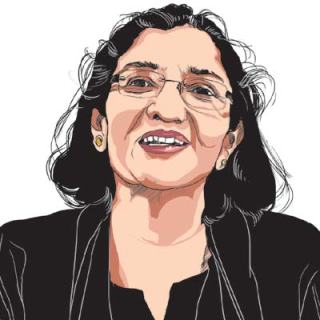Five States, Same Absence
The silence on and of Muslims in assembly poll campaigns rang loud and clear

Elections enable people’s participation in decision-making and governance. We are witnessing protests and agitations by different sections of society in the run-up to the 2019 general elections. Most political parties are forced to take note of the demands by farmers, Dalits, informal workers or the Marathas. Demands by various groups find reflection in the manifestos of parties or at least draw lip-service from political leaders. But Muslims, comprising the largest religious minority in India, remain absent from public discourse despite their poverty, educational and economic backwardness and persistent political onslaught from the Hindutva forces.
Muslim leaders and politicians from so-called secular parties are silent. The silence of Muslim leaders signifies their helplessness as sabka saath, sabka vikas has proved to be a mere slogan. The community, which was already poor and deprived, is now besieged. There has been hardly any action in cases of lynchings by gaurakshaks, while there has been a steady stream of polarising statements from members of the ruling dispensation. The debate around who is anti-national has led to fear in the minds of many. The election agenda is being set by the aggressive rightist forces. The Congress is in the race for “Hindu votes” and is desperate to shed the “Muslim appeasement” label. Muslim leaders realise that the Congress, and most other parties, cannot be counted upon to speak up on their behalf. The silence also owes to the fact that there is no democratic social leadership within the community.
The RSS-VHP is making the case for an ordinance to facilitate the building of a Ram temple at Ayodhya. Muslim leaders remain silent; rightly so, given that the matter is sub judice. But there have been no efforts to respond to the issue, either socially or politically, while the proponents of the Ram temple have tried to capitalise on the issue for electoral gain. Although a mosque in Ayodhya would hardly matter to most Muslims — most would be happy at a Ram temple there — it signifies a much larger question of justice. The Muslims have been abandoned by political parties on this question. A cursory look at the election campaign in Rajasthan and Madhya Pradesh suggests that no political party would like to risk their electoral prospects by assuring safety and security to Muslims.
Political support and articulation are important for the welfare of any community, especially the minorities and backward communities. Community leadership and a progressive social tradition are equally vital. The trajectory of Dalits offers ample evidence in this regard. There have been many Dalit leaders who have engaged at the grass roots to take forward Babasaheb Ambedkar’s vision of social democracy. The popularisation of a democratic discourse within the community has led to a consistent demand for accountability from elected leaders.







































No hay comentarios:
Publicar un comentario